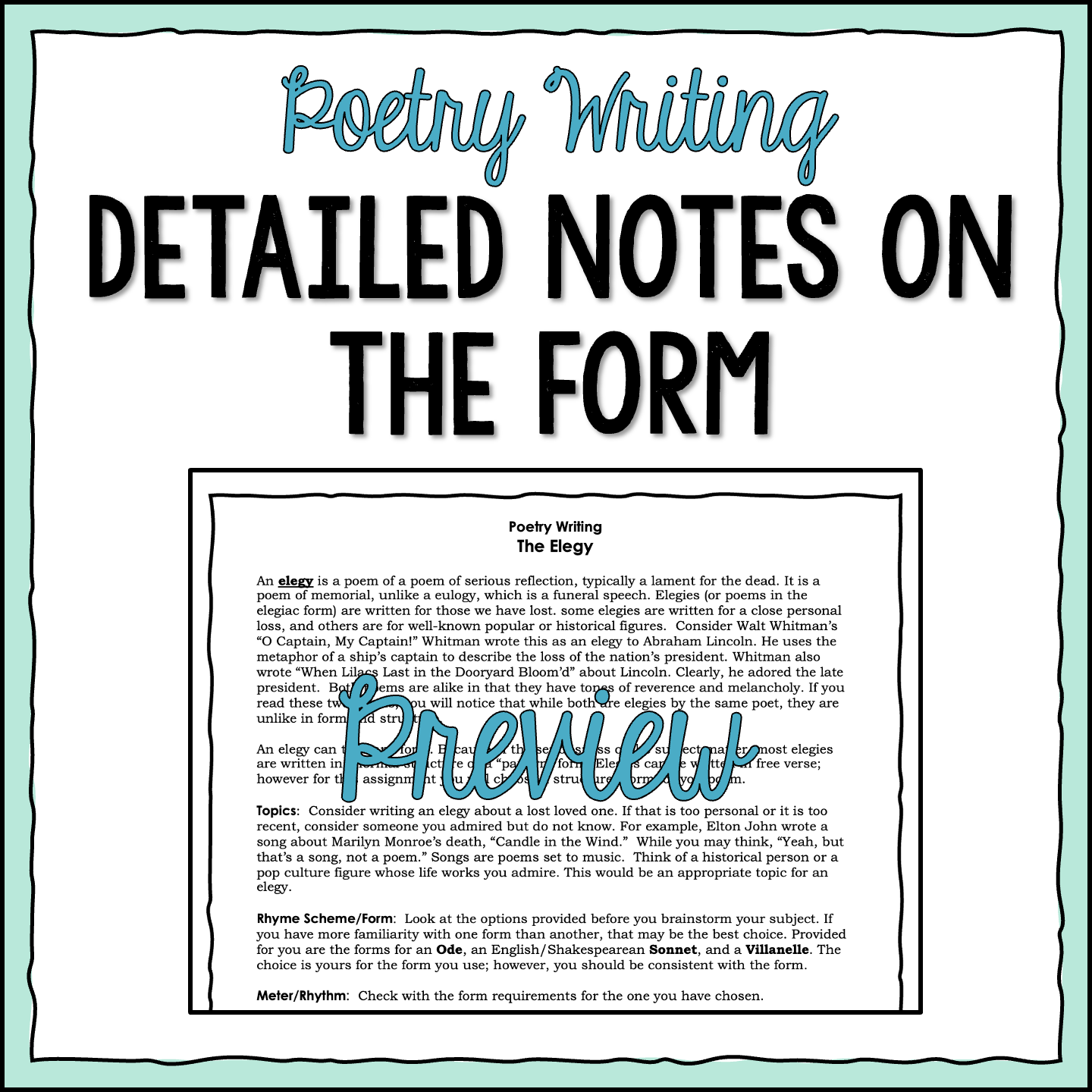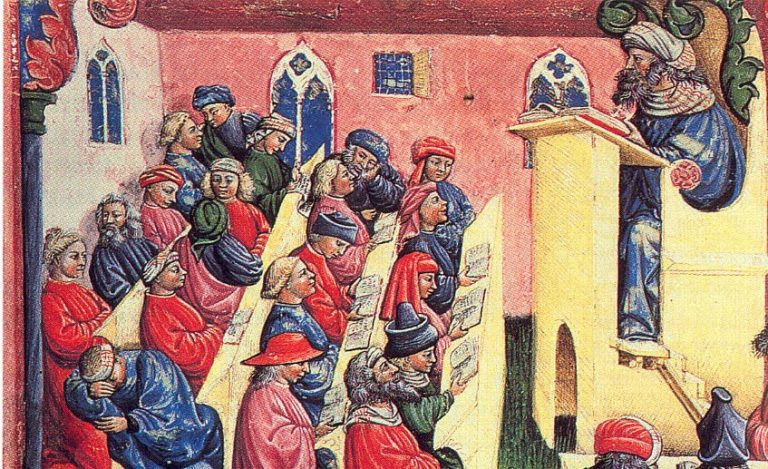The Elegy Poetry Workshop invites participants to explore the profound connection between poetry and grief in a supportive environment. Held in the renowned Woodberry Poetry Room, this workshop offers a safe space for individuals to articulate their emotions and experiences of loss through the evocative medium of elegy. As part of a larger initiative, this workshop not only fosters creative expression but also aims to build community through shared narratives and reflections on mortality. Led by experienced poets, participants engage in poetry writing workshops that encourage introspection and vulnerability, helping them navigate their grief while forming bonds with fellow writers. Discover how the Elegy Poetry Workshop can be a healing outlet for your personal experiences and contribute to the vibrant tapestry of grief poetry in our community.
The Elegy Poetry Workshop stands as a vital space for individuals seeking solace and creativity in the face of loss. By engaging in the tradition of lamentation and reflection, this gathering attracts those interested in mourning and celebrating life through written word. Through community poetry initiatives, participants can collaboratively explore themes of remembrance and consolation, allowing for the cathartic process often vital to healing. The workshop draws on the collective experience of grief, presenting a unique opportunity to engage with fellow writers and reflect on the shared human condition of loss. As part of an ongoing poetry project, this workshop nurtures the inherent creativity in everyone, encouraging participants to express their deep emotions in a nurturing environment.
The Significance of Elegy Poetry Workshops
Elegy poetry workshops serve as a vital conduit for individuals grappling with loss, enabling them to express their grief through the written word. Such workshops are particularly significant in today’s context, where many are navigating the complexities of loneliness and bereavement, especially in the wake of the pandemic. These sessions not only encourage participants to articulate their feelings but also foster a sense of community, where shared experiences of sorrow can be transformed into poetic expressions. The collaborative environment promotes healing as participants engage with one another and their emotions, making the creative process a source of solace and mutual understanding.
The recently held elegy poetry workshop at Harvard’s Woodberry Poetry Room exemplifies this need for community and connection. Spearheaded by poets Karen Elizabeth Bishop and David Sherman, the workshop allows aspiring poets of all backgrounds—whether established writers or those new to poetry—to explore their grief through elegy. By creating a space where participants can delve into their personal experiences of loss, the workshop highlights the power of poetry as a therapeutic tool. The inclusion of prompts and the rich resources from the Poetry Room enhances the creative experience, showing how collective storytelling can bridge individual pain with a broader emotional narrative.
Community Poetry Initiatives: Linking Art and Healing
Community poetry initiatives, such as the Elegy Project, play a crucial role in establishing connections among diverse populations while utilizing poetry as a healing medium. These programs often focus on making poetry more accessible and relevant to everyday life, allowing participants to explore common themes like grief, love, and the human experience. By placing poem cards in public spaces, the Elegy Project not only makes art more visible but also invites individuals to engage with poetry on their own terms. This democratization of poetry encourages the community to share their stories, reflecting the essence of collective healing and personal reflection.
Moreover, workshops that incorporate community poetry emphasize the importance of collaboration and support among poets. Whether they are seasoned writers or newcomers to the art form, participants learn from each other’s insights and perspectives, creating a rich tapestry of voices that resonate on various levels. The Yoga of Writing poetry project, for instance, thrives on this community engagement, showcasing how poetry writing workshops can be instrumental in processing grief and fostering artistic growth. By uniting individuals in a shared poetic journey, these initiatives not only honor individual experiences but also cultivate a sense of belonging and shared understanding in the community.
Crafting Personal Narratives Through Grief Poetry
Grief poetry offers a profound way for individuals to articulate their personal narratives while navigating the intricacies of sorrow. The act of writing elegy can transform raw emotions into structured verses, allowing poets to make sense of their experiences of loss and remembrance. This personal narrative isn’t solely about mourning; it also encompasses hopes, reflections, and the enduring impact of memories. Workshops focused on grief poetry equip participants with the tools to explore these narratives creatively, encouraging them to confront their feelings and find meaning amid their pain.
In vibrant gatherings like those hosted at Harvard’s Woodberry Poetry Room, poets are prompted to delve deeper into their emotional landscapes through elegy. This method not only fosters creativity but also serves as a therapeutic outlet, allowing individuals to convert their grief into something tangible and shareable. As they weave their stories into poems, participants often find commonality in their experiences—transforming isolated sorrow into collective understanding. Through this lens, grief poetry becomes more than a personal artistic endeavor; it awakens an awareness of shared human experiences, cultivating empathy and connection among participants.
Exploring the Role of Elegy in Modern Poetry
Elegy, as a poetic form, has evolved significantly, taking on new meanings in contemporary poetry. While its traditional roots lie in mourning and remembrance, modern interpretations of elegy often embrace broader themes of loss including not just death, but also societal change and personal transformation. Poets today utilize elegy to reflect on collective grief, extending the scope of this form to address urgent cultural conversations, particularly those arising from the pandemic’s toll on isolation and community health. This transformation illustrates how poetry remains a dynamic medium, capable of adapting to the contextual demands of today.
Through workshops focusing on the elegy, poets are encouraged to engage with its rich history while also infusing their own experiences and observations into their work. The Elegy Project at the Woodberry Poetry Room exemplifies this exploration, inviting participants to reflect on their losses in ways that resonate with the current socio-political climate. This blending of the personal with the universal fosters innovative approaches to traditional forms, allowing for a fresh dialogue about loss that speaks to both individual and collective experiences. As such, elegy poetry remains a vital component of modern literary discourse, illustrating the enduring power of verse to articulate the complexities of grief in our lives.
The Healing Power of Writing Workshops in Poetry
Writing workshops, particularly those dedicated to poetry, create an empowering space that often leads to healing for participants. In the context of grief and elegy, these workshops facilitate a process through which individuals can confront their emotions and share their stories in a supportive environment. The act of writing becomes cathartic; as poets pen their elegies, they are not just recounting sorrow but also transforming it into a form that can be shared with others. This process helps to demystify grief, making it a shared human experience rather than a solitary burden.
The Elegy Project’s workshops stand out as a model for how structured creative sessions can support emotional well-being. By engaging participants from varied backgrounds—whether they are seasoned writers or those new to poetry—the workshops emphasize inclusivity and facilitate authentic expression. Participants are encouraged to tap into their feelings, often leading to unexpected revelations and connections with others. This communal approach to poetry reminds us that while grief can feel isolating, the act of writing and sharing it can foster deeper connections within the community, reinforcing the idea that poetry is not just an art form, but a vital tool for engaging with our shared humanity.
Understanding Community Contributions to Poetry
Community contributions to poetry extend beyond mere participation; they embody a collective passion for expression that fuels cultural enrichment. Initiatives such as the Elegy Project and the workshops hosted at the Woodberry Poetry Room signify powerful movements in which community members actively contribute to the artistic landscape. These contributions not only enhance the diversity of voices but also reflect the rich tapestry of unique stories and experiences that exist within a community. Each participant brings their background, emotions, and perspectives to the table, creating a collaborative artistic environment that thrives on inclusion and engagement.
In essence, community poetry initiatives not only nurture individual creativity but also foster a culture of support and collaboration. By providing platforms for local voices to be heard, these programs enrich the community’s cultural fabric while emphasizing the importance of shared experiences. The stories conveyed through poetry workshops highlight collective grief, joy, and resilience, underscoring the transformative power of collaborative artistry. Through shared efforts, community contributions to poetry become a mirror reflecting the soul of society itself, often leading to societal recognition of the potent role that art plays in personal and communal healing.
Promoting Accessibility of Poetry in Public Spaces
The promotion of poetry in public spaces is a crucial aspect of making the art form accessible to a broader audience. Initiatives like the Elegy Project exemplify this approach, where poetry is not confined to books or traditional venues but is instead shared in everyday settings. By placing poem cards in public locations, organizers invite anyone—regardless of their familiarity with poetry—to engage with powerful themes of grief, love, and the human experience. This push for accessibility transforms poetry from an elitist pursuit into a communal one, allowing people from all walks of life to connect with literary art.
Moreover, creating public poetry displays fosters a sense of shared ownership of the art form. As the community interacts with poetry in their daily lives, individuals are encouraged to see themselves as part of the poetic tradition. The workshops associated with initiatives in places like the Woodberry Poetry Room create environments where individuals can respond creatively to public poetry displays, turning spectators into active participants. This dynamic promotes not only the appreciation of poetry but also its creation, emphasizing that poetry belongs to everyone and can play a vital role in collective healing and shared understanding.
Exploring New Perspectives on Loss and Remembrance
Exploring new perspectives on loss and remembrance through poetry can create rich opportunities for growth and healing. Workshops dedicated to elegy encourage individuals to confront their feelings about grief in innovative ways, pushing the boundaries of traditional forms. By examining how different cultures interpret loss, participants can gain insights into their own relationships with remembrance. This exploration allows for a deeper understanding and appreciation of how poetry acts as a vessel for processing complex emotions often associated with grief.
In the Elegy Project workshops, participants are guided to think creatively about how they express loss, moving beyond conventional elegiac forms to incorporate personal and collective reflections. This encouragement to innovate fosters a sense of liberation and opens new avenues for artistic expression. As poets learn to interlace personal narratives with universal themes, the result is a diversified approach to elegy that reflects not just individual sorrow but societal experiences of loss. By embracing artistry as a way to navigate grief, participants ultimately find resilience and a deeper connection to their communities.
Engaging Through Poetry: A Reflective Journey
Engaging through poetry offers participants a reflective journey that intertwines personal healing with community connection. The practice of writing and sharing elegies becomes an act of introspection as well as a communal experience that encourages vulnerability. In workshops such as those organized by the Elegy Project, participants explore varied dimensions of their grief while reflecting on how these experiences resonate across different lives. The workshops create a space where reflections on loss can spur conversations that lead to mutual understanding, support, and shared catharsis.
This reflective journey into the heart of poetry allows for a rich exchange of narratives, thereby enhancing the emotional depth of participants’ writing. Through crafting elegies, poets are not merely recording their feelings; they are also offering a piece of their story to the world. The dynamic interactions within the workshop further nurture this reflective practice, as participants offer feedback and insights that enrich their own and each other’s poetic voice. Ultimately, this engaging process underscores the profound power of poetry to connect individuals through shared experiences of loss, sorrow, and remembrance.
Frequently Asked Questions
What can I expect from the elegy poetry workshop at the Woodberry Poetry Room?
In the elegy poetry workshop at the Woodberry Poetry Room, participants can expect a collaborative and supportive environment where they can explore the art of writing elegies. Led by experienced instructors, the workshop focuses on using personal experiences of grief and loss to craft meaningful poetry. Participants will engage with prompts, share their work, and connect with others who are navigating similar feelings, making the process both cathartic and communal.
How does the Elegy Project promote community poetry and grief expression?
The Elegy Project promotes community poetry and grief expression by celebrating the human experience of loss through collective writing initiatives. By distributing poem cards in public spaces and hosting workshops at the Woodberry Poetry Room, the project aims to make the act of mourning less isolating. This inclusive approach encourages individuals to confront their grief creatively while connecting with others in the community who may share similar sentiments.
Who can attend the elegy poetry workshop?
The elegy poetry workshop is designed for anyone interested in exploring grief poetry, regardless of their background in writing. Whether you’re a seasoned poet or someone looking to express their feelings for the first time, the workshop welcomes all participants. This inclusivity allows individuals from various walks of life, such as students, professionals, and retirees, to engage in meaningful creative expression together.
What is involved in the writing process during the elegy poetry workshop?
During the elegy poetry workshop, participants engage in a guided writing process that includes prompting exercises, discussion of existing elegies, and feedback from peers. The instructors encourage exploring texts and utilizing the Poetry Room’s collection as inspiration. This structured yet flexible approach helps participants navigate their emotions and develop their poetic voice in response to themes of loss and remembrance.
What types of elegy poetry will be explored in the workshop?
The workshop will explore various types of elegy poetry, focusing on personal and universal themes of loss, mourning, and healing. Participants may write traditional elegies that honor loved ones, as well as innovative approaches that reflect personal grief experiences or the collective sorrow of the pandemic. This breadth allows for a diverse range of poetic styles and expressions to emerge within the group.
How does attending the elegy poetry workshop benefit personal healing?
Attending the elegy poetry workshop can significantly benefit personal healing by providing a safe space for participants to articulate their grief through the creative process. Writing elegies allows for acknowledgment of loss, fostering emotional catharsis. Furthermore, the sense of community and shared experience can diminish feelings of loneliness, reinforcing the idea that one is not alone in their sorrow.
What is the community impact of the Elegy Project and its workshops?
The community impact of the Elegy Project and its workshops is profound. By facilitating open conversations about grief through poetry, the project fosters connections among individuals facing similar losses. These workshops not only enhance access to poetry for all but also build a supportive community where creative expression can flourish. This initiative transforms poetry into a shared experience, helping to alleviate the isolation often felt in times of sorrow.
How often are elegy poetry workshops held at the Woodberry Poetry Room?
Elegy poetry workshops at the Woodberry Poetry Room are held periodically, with events scheduled throughout the year. The frequency may vary based on community interest and project development. Keeping an eye on the Poetry Room’s announcements and upcoming events is a great way to stay informed about future workshops and opportunities to engage with elegy poetry.
| Key Points |
|---|
| Maria and Julia Lisella, Josh Kurtz, and Kenny Likis participated in a poetry workshop at Harvard’s Woodberry Poetry Room, reflecting on their writing. |
| The workshop focused on elegy poetry, inspired by feelings of loneliness and grief due to the pandemic. |
| Led by Karen Elizabeth Bishop and David Sherman, the workshop is part of the larger ‘Elegy Project’. |
| Elegy poetry traditionally honors the dead, expressing human emotions around loss and grief. |
| The Elegy Project aims to connect communities through poetry and alleviate feelings of grief. |
| Participants ranged in background and aimed to expand their poetry writing experience. |
| Writing prompts and discussions fostered creative engagement and inspiration among participants. |
| The project utilizes public poetry cards to make poetry accessible and support community voices. |
Summary
The elegy poetry workshop provided an enriching environment where participants could explore their emotions and experiences related to loss and grief. By focusing on the theme of elegy, the workshop not only honored those loved and lost but also fostered a strong community connection through shared expression. The Elegy Project exemplifies the power of poetry as a tool for healing, making it accessible to all, not just those traditionally involved in literary circles. As attendees learned to articulate their feelings through poetry, the workshop celebrated the collective human experience of mourning and remembrance.


